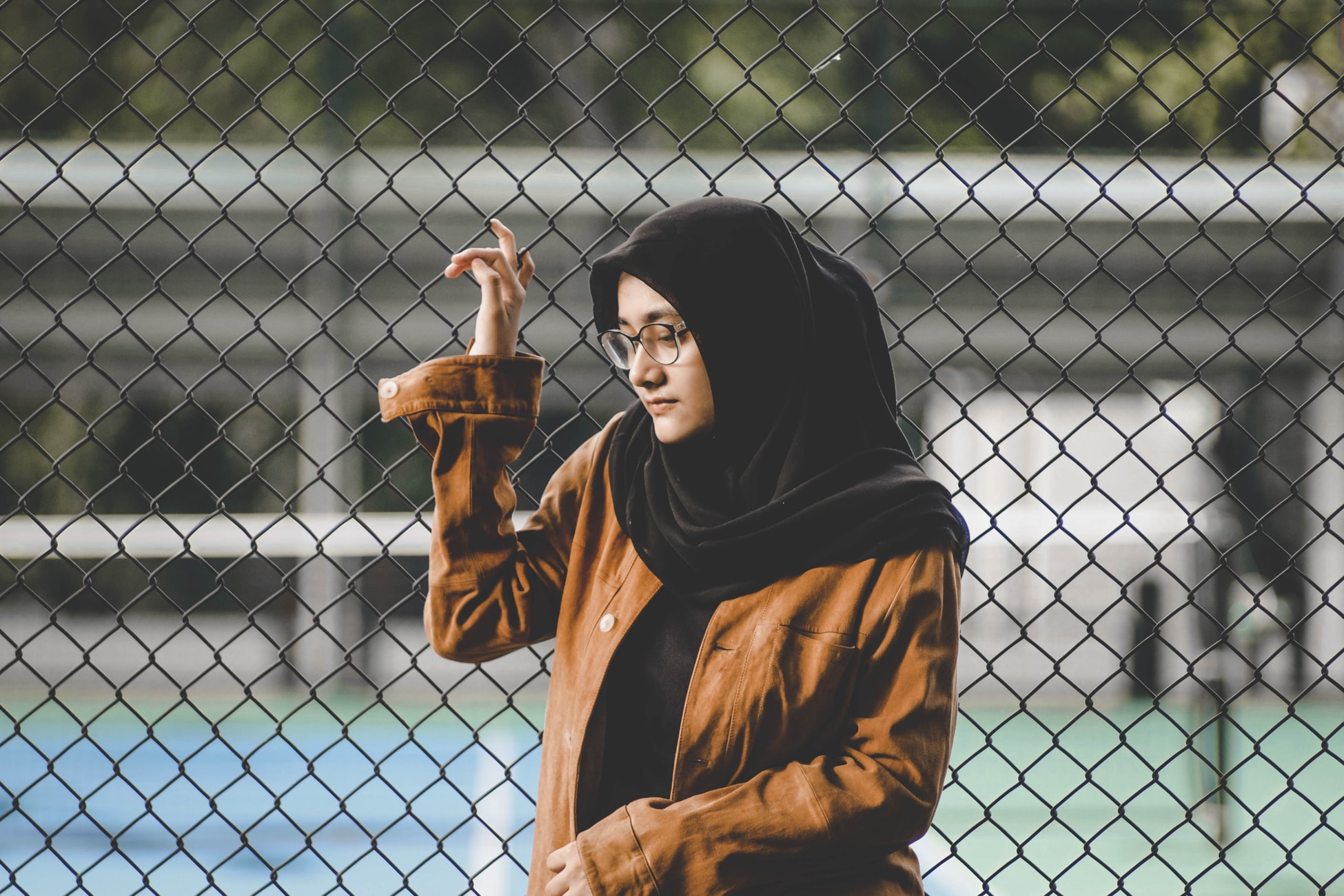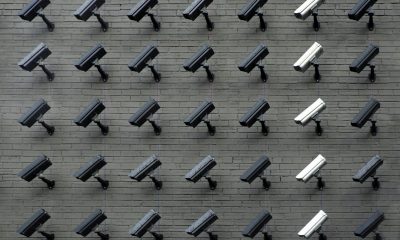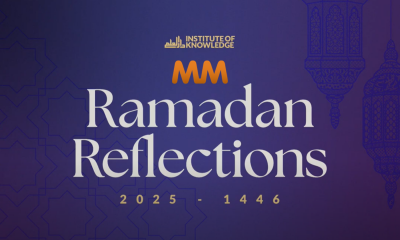Last semester, I was teaching Roxane Gay’s essay “Peculiar Benefits” to a class of college freshmen. Following Gay’s lead, I asked my students to reflect critically on their own lives, on when they benefited from certain forms of privilege and when they didn’t. Unsurprisingly, my students pointed out many intelligent things, such as how English-language skills and physical ability are often unacknowledged as forms of privilege. What surprised me was what all the Muslim students listed not as a privilege but as a source of marginalization: being Muslim.
My students are on to something. Being Muslim American today means dealing with a president who recently expanded his travel ban to six new countries, all of which have sizable Muslim populations. Being Muslim American today means worrying if your own house of worship will be attacked by a white supremacist, as happened in New Zealand, and in states across America. Being Muslim American means belonging to a faith community that, according to the research, endures the highest levels of religious discrimination in the country today.
In other words, being Muslim means confronting an Islamophobia that is real, that is part of American government policy, and that can even be deadly. With this sober reality, you might assume that American Muslims would be unified in collective opposition to the dangerous bigotry that is Islamophobia.
Keep supporting MuslimMatters for the sake of Allah
Alhamdulillah, we're at over 850 supporters. Help us get to 900 supporters this month. All it takes is a small gift from a reader like you to keep us going, for just $2 / month.
The Prophet (SAW) has taught us the best of deeds are those that done consistently, even if they are small.
Click here to support MuslimMatters with a monthly donation of $2 per month. Set it and collect blessings from Allah (swt) for the khayr you're supporting without thinking about it.
New research, however, puts this notion into question. According to a study by the Institute for Social and Political Understanding (ISPU), a research organization that studies American Muslims in depth, Muslim Americans can themselves be Islamophobic.
The findings are as interesting as they are unexpected. Over the last two years, the ISPU and Georgetown University’s Bridge Initiative have used a measure tracking anti-Muslim sentiment that they developed. Called the “Islamophobia Index,” the measure is based on answers to specific survey questions regarding Muslims and their assumed behaviors.
Over the last two annual polls conducted by ISPU, the findings reveal that white Evangelicals hold the most Islamophobic attitudes of any faith group while Jews are among the lowest. In the 2019 study, only Muslims were less Islamophobic than Jews, but some Muslims still endorsed Islamophobic sentiments.
Where does this internalized Islamophobia come from?
Some of it seems to be internalized shame. Muslims are the most likely faith community to “strongly agree” (44%) with the following statement: “When I hear that a member of my faith community committed an act of violence, I feel personally ashamed.” This compares to roughly a third of Jews (34%), Catholics (34%), Protestants (35%), and white Evangelicals (33%).
But that’s not all. Through crunching the numbers, the ISPU determined who’s more at risk in holding Islamophobic attitudes and what could protect someone from believing Islamophobic ideas. The least likely Muslims to hold Islamophobic views tend to be Democrats, thirty years-of-age or older, and self-identifying as Arab or Asian. Risk factors, meanwhile, include being between 18 and 29 years old, having experienced gender discrimination, either from within the Muslim community or from outside the Muslim community, and having experienced sectarian discrimination from within the Muslim community.
What does all this mean? A fully formed picture may have to wait until a qualitative study puts some flesh onto these numbers, but it’s not difficult to see where the research is heading. It seems statistically likely that both gender discrimination and sectarian discrimination are pushing some young American Muslims into internalizing Islamophobia. According to ISPU’s 2019 Annual Poll, “as many as 41% of Muslim women experience gender discrimination at the hands of other Muslims at some frequency.” We should also note that sectarian discrimination with the American Muslim community has a racial dimension. The ISPU study identifies Black Muslims reporting much higher levels of sectarian discrimination (43% report it) than Arab Muslims (at 26%).
What does this mean for the community?
It’s time to state this plainly. We Muslim Americans simply must get our own house in order if we want to vanquish Islamophobia. Sexism and sectarianism have no place in the Muslim-American community. While outside factors such as negative media portrayals of Muslims certainly play a role in normalizing and promoting Islamophobic ideas, it’s also true—as this latest study makes clear—that Muslims who have personally experienced discrimination from other Muslims are the ones more likely to internalize Islamophobia.
And internalized Islamophobia, like all Islamophobia, is disastrous for everyone. People who score high on the Islamophobia index, Muslim or not, are also more likely to support discriminatory policies (such as the Muslim ban and the surveillance of mosques), curtailing civil liberties, and even the military targeting of civilians. On the other hand, those with the lowest levels of Islamophobia also exhibit high regard for African Americans, Jewish Americans, and LGBTQ Americans, proving that Islamophobia is but one part of how racism and discrimination work in this country.
Faith as a source of happiness
While internalized Islamophobia is real, it is also true that most Muslim women (87%) and Muslim men (84%) report seeing “their faith identity as a source of happiness in their life.” All the more reason why the onus of defeating internalized Islamophobia is on no one but us Muslims.
After all, as every Muslim reads in the Qur’an, “Allah will not change the condition of a people until they change what is in themselves” (13:11). Stopping internalized Islamophobia is also a necessary step to defeating all Islamophobia. And when that day comes, I suspect my Muslim students will consider their faith not as a stigma of difference but as a source of profound pride.













GregAbdul
March 13, 2020 at 12:31 AM
To be fair, race relations among Muslims are much more complicated than the typical vanilla/chocolate Sunday service. There are ethnic masjids, but most of the mosques I go to have like ten or twelve ethnicities if there are more than 30 people present.
Most of all, without specifically naming them, the board of my masjid works hard at integration. Our mosque is Indo/Pak in a black neighborhood that is gentrifying into Spanish. Of course there are some low ones in their group that do racist things and never seem to quit, but they are the few who are not in positions of authority. The people in charge work hard to make me feel welcome and overcome the misunderstanding we have because of cultural differences.
There are two common ones. Immigrants tend to assume black American Muslims do not know Islam. Believe me, if you have converted from a Christian family and dealt with that pressure and hostility that is like what the Prophet (sws) dealt with, you only make it long term through study. The other thing is men freaking out and thinking any woman anywhere near the mosque has to be covered perfectly, as if we men are the experts on women’ clothing. May Allah protect us and give us humility that makes us shun being the masjid police.